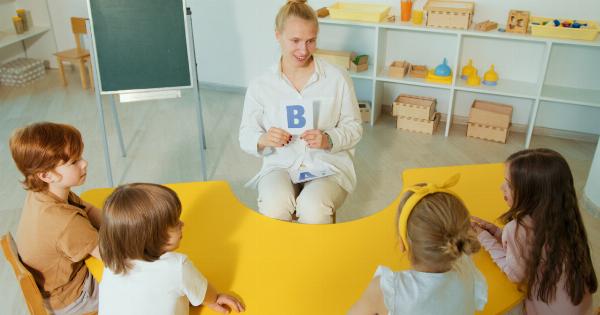Learning disabilities are neurological disorders that affect a person’s ability to acquire, process, or retain information.
These disabilities can manifest in various ways, impacting an individual’s cognitive, academic, and social functioning. While learning disabilities pose significant challenges, they do not define a person’s intelligence or potential.
With appropriate support and interventions, individuals with learning disabilities can overcome obstacles and achieve positive life outcomes.
Educational Attainment
One crucial aspect of life outcomes for individuals with learning disabilities relates to educational attainment.
Academic success can be challenging for individuals with learning disabilities, but with targeted interventions and accommodations, they can thrive in educational settings. Special education programs, individualized education plans (IEPs), and assistive technologies play a vital role in empowering students with learning disabilities.
Transition to Employment
Transitioning from education to employment is a significant milestone for anyone, including individuals with learning disabilities.
While securing employment can be more difficult, various strategies can enhance the prospects of individuals with learning disabilities in the job market. Vocational training programs, job coaching, and workplace accommodations are some of the avenues through which individuals with learning disabilities can succeed professionally.
Mental Health and Well-being
Learning disabilities often coexist with mental health challenges. The frustration and stress associated with learning difficulties can lead to anxiety, depression, and low self-esteem.
It is crucial to address the mental health needs of individuals with learning disabilities to ensure their overall well-being. Access to mental health services, counseling, and support groups can positively impact the quality of life for individuals with learning disabilities.
Independent Living
Developing skills for independent living is another critical aspect of life outcomes for individuals with learning disabilities.
Daily life activities such as managing finances, cooking, and maintaining personal hygiene may require additional support and instruction. Life skills training programs can equip individuals with learning disabilities with the necessary skills and confidence to live independently and participate fully in society.
Social Relationships
Social interactions can be challenging for individuals with learning disabilities, affecting their ability to form and maintain relationships.
However, with targeted social skills interventions and inclusive environments, individuals with learning disabilities can cultivate meaningful connections and friendships. Peer support programs, social skills training, and community engagement initiatives are valuable in promoting social inclusion.
Advocacy and Self-Advocacy
Advocacy plays a crucial role in ensuring that individuals with learning disabilities have equal opportunities and access to necessary support services.
Advocacy efforts can drive systemic change, promote inclusive policies, and enhance public awareness and understanding. Equally important is the development of self-advocacy skills, empowering individuals with learning disabilities to advocate for their needs, rights, and aspirations.
Technology and Assistive Devices
Advancements in technology have opened up new possibilities for individuals with learning disabilities.
Assistive devices such as text-to-speech software, speech recognition tools, and electronic organizers can significantly enhance academic, professional, and daily life functioning. It is essential to promote the availability and accessibility of such assistive technologies to maximize independence and productivity for individuals with learning disabilities.
Family Support
The support and involvement of family members are crucial for individuals with learning disabilities. Families can play a vital role in advocating for their loved ones, accessing appropriate resources, and providing emotional support.
Building strong partnerships between families, educators, and professionals is instrumental in ensuring the best possible outcomes for individuals with learning disabilities.
Community Inclusion
Creating inclusive communities is essential for individuals with learning disabilities to thrive and achieve positive life outcomes. Building awareness, fostering acceptance, and embracing diversity are key to promoting inclusivity.
Community-based programs, accessible recreational activities, and employment opportunities can contribute to the social integration and overall well-being of individuals with learning disabilities.
Conclusion
While learning disabilities present unique challenges, they do not preclude individuals from leading fulfilling, successful lives.
By recognizing the diverse needs of individuals with learning disabilities and providing the necessary support and accommodations, society can enable them to overcome obstacles and achieve positive life outcomes. Through education, employment, social inclusion, and community support, individuals with learning disabilities can realize their potential and make significant contributions to society.






























